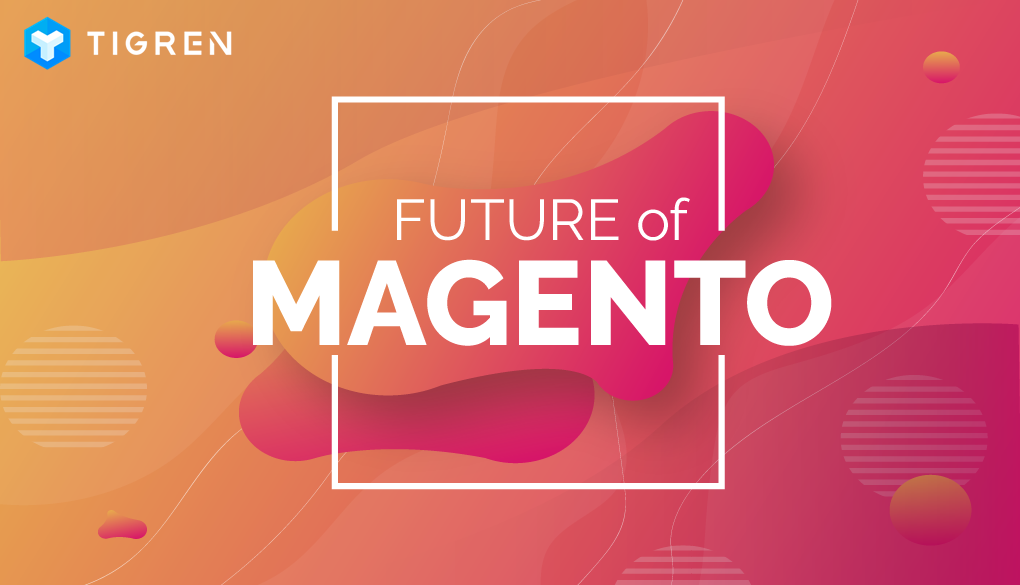The future of Magento is expected to experience significant development. With its robust features and flexibility, it has become a preferred choice for businesses seeking to establish and expand their online presence. As technology progresses, Magento is well-positioned to adapt and meet the evolving needs of merchants and consumers.
The platform is likely to focus on advancements in artificial intelligence, progressive web applications, virtual reality, augmented reality, and visual search. These emerging technologies have the potential to revolutionize the e-commerce industry, offering personalized experiences, seamless user interfaces, immersive product interactions, and enhanced search capabilities.
By embracing these trends, Magento enables businesses to provide exceptional online experiences, increase conversions, and stay ahead in the competitive market. With its customer-centric approach and commitment to innovation, Magento will continue to shape the future of e-commerce, empowering businesses to thrive in the digital era.
The Current State of Magento
Magento is a powerful e-commerce platform that offers merchants the ability to customize their entire shopping experience. Since being acquired by Adobe in May 2018, Magento has continued to evolve and expand its offerings. While Adobe provides a hosted version of Magento called Magento Commerce Cloud, users can also choose to host their Magento store on various other platforms or even on their own servers.
One of the key indicators in the growth of Magento is the number of live stores currently running on the platform. According to Store Leads, as of the second quarter of 2023, there are an impressive more than 150.000 live stores using Magento. This reflects a significant increase, with Magento stores growing by 4.4% quarter-over-quarter and 20% year-over-year during that period.
Taking a closer look at the distribution of Magento stores across different countries, they also find that the United States leads the way with 13.7% of Magento stores, followed by the United Kingdom at 6.8%, Germany at 6.0%, and the Netherlands at 5.4%.
When it comes to engaging with consumers, e-commerce brands utilize social media platforms to reach millions of potential customers. Among these platforms, Facebook and Instagram are the dominant choices for Magento stores, with Twitter, Pinterest, and YouTube also showing notable usage. Specifically, 44.6% of Magento stores use Facebook, while 35.5% leverage Instagram and 18.3% utilize Twitter.
We can see some interesting patterns in the industry verticals represented by Magento stores. The Home & Garden sector accounts for 10.9% of Magento stores, making it the most prominent category. Apparel products come in second at 9.3%, followed by Business & Industrial products at 5.1%.
6 Trends In The Future of Magento
1. Artificial Intelligence

To empower merchants with AI capabilities, Adobe launched the Magento Product Recommendations extension for Magento Commerce users on April 14, 2020. This extension harnesses the power of AI and machine learning through Adobe’s proprietary technology called Adobe Sensei.
Adobe Sensei is an AI-powered technology that enables the creation and delivery of personalized experiences across various touchpoints. It integrates seamlessly with the Adobe Experience Cloud, bridging the gap between ideation and execution using data gathered from digital interactions.
By leveraging Adobe Sensei, Magento Commerce users can predict customer behavior, customize content effectively, and gain insights into advertising strategies. This reduces the guesswork involved in advertising campaigns and optimizes the return on investment. In fact, users of Adobe Sensei have reported a significant 81% decrease in the cost-per-click in their video advertising campaigns, showcasing the potential impact of AI-powered advertising.
Historically, AI technology has been expensive and inaccessible for most small and medium-sized businesses. However, Adobe Sensei brings cutting-edge AI capabilities within reach. Although Adobe Sensei is primarily available to Adobe Experience Cloud subscribers, Magento Commerce users can leverage this technology through the Product Recommendations extension at no additional cost.
Moreover, AI adoption in Magento extends beyond Adobe Sensei. Rapid innovation worldwide is enabling businesses to introduce AI and machine learning in various aspects of their ecommerce operations.
By embracing AI technologies, Magento is paving the way for a more intelligent, personalized, and efficient ecommerce future. With advancements in AI, merchants can automate processes, gain valuable insights, and deliver exceptional experiences that meet and exceed customer expectations.
2. Progressive Web Applications

Progressive Web Applications have emerged as a game-changer in the ecommerce industry, simplifying the process of building ecommerce pages and managing front ends. The key advantage of PWAs lies in their ability to prevent cart abandonment, ultimately leading to increased sales and revenues. Functioning as web apps that resemble mobile apps in terms of look, feel, and behavior, PWAs eliminate the need for users to visit app stores and download additional applications, saving valuable storage space on their devices.
The speed, efficiency, and offline capabilities of PWAs contribute to an optimized user experience. Over 1,000 websites are currently utilizing Magento PWA Studio, a powerful tool provided by Adobe Commerce specifically designed for developing PWAs on the Magento 2 platform.
The integration of PWAs has revolutionized ecommerce businesses, enabling them to witness higher revenue figures while minimizing investment. Traditionally, companies had to invest in separate mobile applications for iOS and Android platforms. However, with the adoption of PWAs, they can now provide a seamless online experience across devices and operating systems.
The Magento PWA trend is further supported by statistics that demonstrate the effectiveness of PWAs. According to these stats, PWAs can drive revenue growth by 20% and significantly reduce checkout abandonment rates by 95%. This remarkable performance makes PWAs an essential tool for businesses seeking to thrive in the competitive ecommerce landscape.
3. Virtual reality and Augmented Reality

Augmented Reality (AR) and Virtual Reality (VR) have emerged as transformative technologies in the ecommerce development, revolutionizing the way customers experience and interact with products. In 2023, these technologies are set to dominate the Magento eCommerce landscape, offering unique advantages for businesses and customers alike.
AR/VR increase customer engagement to the website by providing customers with the option to visualize products before purchasing. The immersive experiences offered by these technologies keep users on the site longer, increasing the likelihood of conversion. Even if a purchase isn’t made immediately, the brand leaves a lasting impression on the customer’s mind.
AR/VR minimizes the chances of returns by enabling customers to analyze products thoroughly. Customers can assess aspects such as appearance, dimensions, and suitability, reducing uncertainties and improving decision-making. By providing a more accurate representation of products, AR/VR reduces the likelihood of dissatisfaction upon delivery.
Another benefit of AR/VR to the website is to Increase conversions; gain a competitive advantage … Magento, as a leading eCommerce platform, recognizes the potential of AR and VR in shaping the future of online retail. With numerous AI extensions available, Magento offers the flexibility to develop innovative features tailored to specific business requirements. By integrating AR and VR into your Magento store, you can deliver an exceptional user experience, increasing the chances of conversion and staying ahead of the curve.
4. Visual Search

Visual search is quickly emerging as a key trend in Magento development for 2023, offering users the ability to search for products online using actual images.
Visual search revolutionizes the way users search for products on a website by allowing them to upload images instead of relying on traditional text-based search. This functionality is especially practical for mobile devices, offering a seamless and convenient experience for users. Industries such as fashion, where finding products based on written descriptions can be challenging, benefit greatly from visual search capabilities.
Merchants can implement visual search capabilities in their Magento online stores through extensions. Customers can upload an image file from the storefront, and the search engine analyzes it, compares it with the product catalog, and quickly displays relevant products. Additionally, the extension provides related keywords and search terms based on the analyzed image, further improving the search experience for customers.
The integration of visual search brings several benefits to an eCommerce store. Customers can enjoy more accurate search results, saving time and improving their browsing experience. This, in turn, leads to increased leads and higher conversion rates for the online store. Visual search is set to become a significant trend in Magento eCommerce in 2023.
5. Advanced Product Information Management (PIM)

Product Information Management (PIM) ensures accurate and consistent product data across channels.PIM synchronizes product information across platforms, including catalogs, marketplaces, and eCommerce channels. Centralized management allows easy editing and updates, ensuring data accuracy.
PIM integration enables businesses to align product offerings with market trends. Analysis of trending topics helps businesses make informed decisions and meet customer demands effectively.
Magento has integrated PIM functionalities into its platform, recognizing their importance. In 2023, Magento will expand PIM capabilities, providing businesses with powerful tools for product information management. therefore empowering improves customer experiences, fosters trust, and drives growth in the competitive eCommerce landscape.
6. Headless Commerce

Headless commerce is revolutionizing the e-commerce landscape by separating the frontend and backend systems, offering unmatched flexibility. The forthcoming upgrades in GraphQL, such as Personalize and Page Builder features, empower businesses to create highly customized frontends. This flexibility extends to all frontend layers from a single backend, enabling tailored experiences for different channels and devices.
Headless commerce goes beyond Magento, with Google and other companies offering headless commerce architecture. Experts predict increasing adoption of headless commerce in enterprise e-commerce throughout 2023 and beyond. This approach allows businesses to leverage Magento’s robust inventory management and order processing capabilities while customizing the client-side rendering for various channels, including tablets, computers, and smartphones.
The headless model enables a superior omnichannel experience, expanding reach to unconventional devices like IoT devices and billboards. Content unification across devices ensures a consistent branding message. Moreover, headless commerce offers more flexibility in customization, allowing for easier testing of new features and the simultaneous work of different teams on various aspects of the website.
Final Thoughts
In conclusion, the future of Magento appears to be promising and full of opportunities. With its continuous evolution and adaptation to emerging technologies, Magento is poised to shape the e-commerce landscape.
The integration of artificial intelligence, progressive web applications, virtual reality, augmented reality, and visual search will revolutionize the way businesses engage with customers and provide personalized experiences.
Moreover, the emphasis on advanced product information management will ensure accurate and consistent data across channels, fostering customer trust and driving growth. As Magento continues to empower merchants with innovative tools and features, it will enable businesses to stay ahead of the curve, deliver exceptional user experiences, and thrive in the competitive e-commerce industry.
Exciting times lie ahead for Magento and the e-commerce community!
See More:
Magento 2.2.6 Release: Is It Worth Our Expectations?
Best Free Magento 2 Extensions: 40+ Must-Have Extensions For Free Download In 2022

